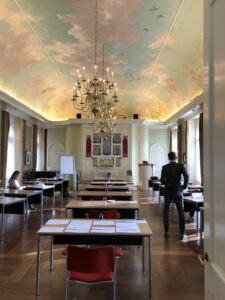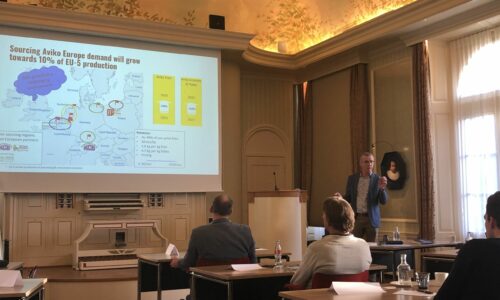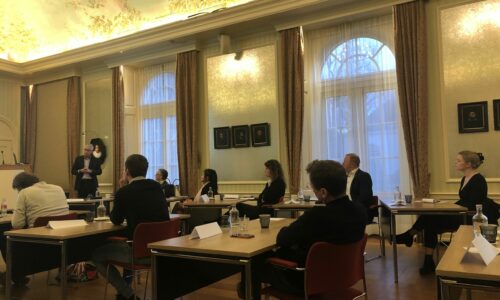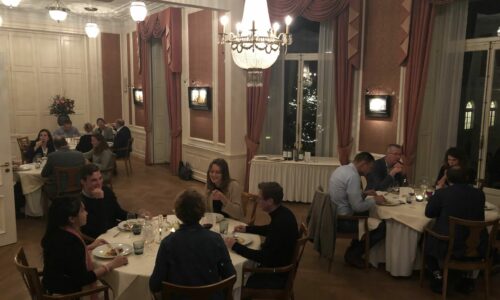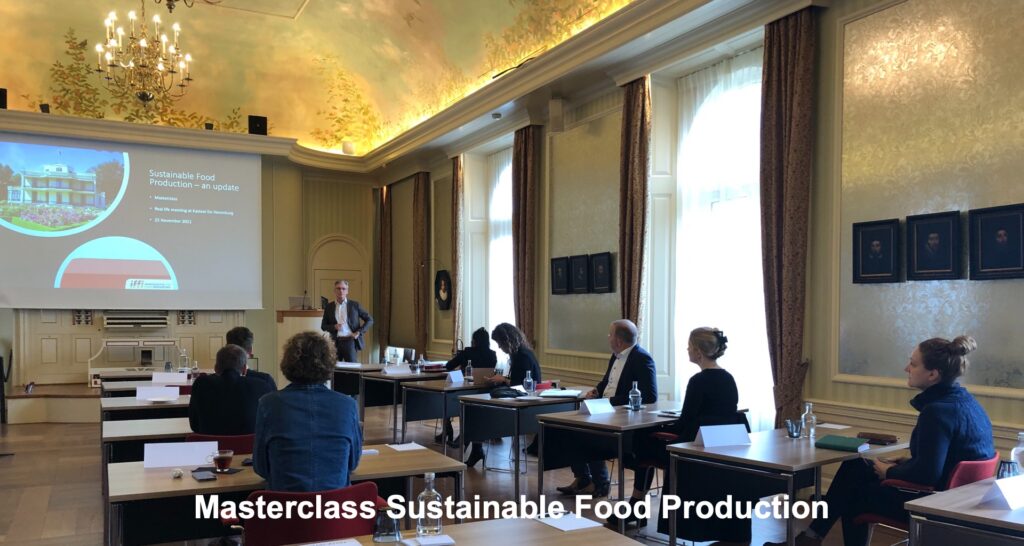
REVIEW event ‘Sustainable Food Production’
“414. Does that number sound familiar to anyone?” The number on the first slide of the PowerPoint of IFFI’s masterclass on Sustainable food Production seemed unknown to the audience. After a short silence, Halbe Vogel, founder of IFFI, continued, “414 represents the concentration of carbon dioxide parts per million in the air today. Before the Industrial Revolution, it was 280 ppm. We are as an industry, the cause of this,’ says Halbe Vogel, ‘And now, we want to be a part of the solution.’ With this strong statement, Vogel initiated IFFI’s masterclass last Thursday, the 25th of November.
The masterclass gave center stage to five different speakers, each of them with a slightly or completely different message. The speculations for the future of food production vary. On the one hand, we were given a socially engaged perspective with a hopeful message for the future, offered by Sanne Griffioen, representingFrieslandCampina, and Henri Bisschop, representing AVIKO. According to Griffioen and Bisschop, it is about collaborating with one another. Together, they share the same opinion: the need to start working with farmers to make an impact.
On the other hand, Esther Sliepen, representing Cargill, revealed the bleak reality and the complexities that the industry is to face. She tackled the post corona issue of increasing shipping costs and offered one possible solution: to relocate the production area. Opinions on the latter differed.
Ronald Terlouw, representing Albott, spoke of the stiff attitude that bigger companies hold towards innovative methods of production and the high costs of reducing greenhouse gas emissions. The multiple roots of the problem that were touched upon made the masterclass relevant for all participating members.
To top off the evening, Jacques ten Kate spoke about his collagen protein producing companies and the innovative energy source he uses: CO2. Potentially a source of energy that other companies in the industry could adopt. Ten Kate uses bovine skin, a side stream of the industry to produce these proteins. “Sustainability is also about saving costs,” he says.
During the short break, there was time for a chat, a drink and snacks. The value of the masterclass? “Of course I am aware of the issues our industry is facing today, but I don’t know the roots of them. The masterclass allows me to learn the details and put things in clearer context,” one of the participants said.
The opinions of our speakers varied: some convinced that sustainability will become a must for customers, others are convinced that price is the most important denominator in the choice the customer makes. The cheapest product sells best.
In general, the public participated a lot during the event, discussions started among the guests, advices were given from one company to another and questions asked. Because in the end, even though each guest represented and works for its individual company, in the industry, everyone is in it together.
